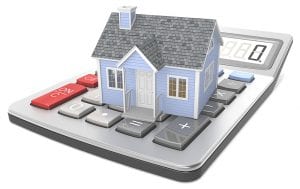Mortgage Modifications And Short Sales May Not Be The Answer

Although at first glance a short sale or mortgage adjustment may seem like a great option, it’s important to get the full picture before making any decisions. Did you know that short sales and mortgage re-negotiations can have significant tax consequences? If you’re drowning in debts and unable to make your mortgage payments, bankruptcy may be a more favorable option for you. Let’s learn why.
Are you at risk of losing your most valuable possession in a foreclosure? Contact Sirody & Associates for a free consultation.
Exploring Loan Modifications
- The upside: A loan modification sometimes takes place between borrowers and lenders when borrowers are unable to meet the financial obligations of a large loan, such as monthly home mortgage payments. During the re-negotiation of the loan, it’s possible that the borrowers may benefit from lower mortgage payments thanks to a reduction in the interest rate without facing foreclosure or negative impacts to their credit report.
- The downside: Loan modifications can cause major tax complications. When borrowers file their income taxes, they are allowed to take deductions for the interest that they have paid on their mortgage payments. With a reduced interest rate the interest paid is reduced, meaning that borrowers may have to pay taxes on a larger amount of income. Additionally, some loan modifications result in settlements of large portions of debt. The IRS actually counts debt settlement money as income. Again, this will again increase the overall amount of taxable income for the borrower.
Exploring Short Sales
- The upside: In a short sale, the bank that holds the mortgage approves the borrower to sell the house for less money than the amount of money that is owed on the mortgage. In essence, the selling price of a short sale home is “short” the amount of money that the lender is owed. One of the main benefits of a short sale to the borrower is that it helps them avoid negative consequences on their credit rating that a foreclosure would have. Foreclosures can also be very costly for both the homeowner and the lender, so this option eliminates some of those costs.
- The downside: If a borrower owes $300,000 on a mortgage, but the approved selling price of the home is $250,000, then there is a “deficiency” of $50,000. In some cases, lenders will seek a personal judgement against the borrower in order to recover the deficiency amount, in this case, the $50,000. If the judgement is obtained, the lender may be able to garnish wages or levy the the borrowers bank account in an attempt to collect the deficiency. There is a chance that the lender may opt to forgive the deficiency, in which case the borrower will not be required to repay the lender for the deficiency amount. The problem with this scenario, however, is that the deficiency money owed is reported to the IRS as taxable income.
Exploring Other Options
Loan agreement modifications and short sales are not your only solutions if you’re unable to make mortgage payments. You do have other options.Moving into a bankruptcy can actually help you prevent foreclosure and let you stay in your home. If you’re at risk of losing your home, Sirody & Associates can explain the differences between Chapter 7 and Chapter 13 bankruptcy and will help you fully explore every available option. Over the past two decades, we have helped thousands of Baltimore residents stay in their homes.
Contact Sirody & Associates for a free consultation.
